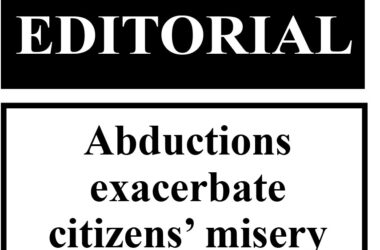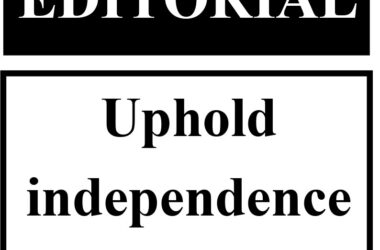Our lawmakers have taken the right step, as being their role, to question the executive concerning an astronomical eruption of US Dollar rate, along with commodity prices, on a space trip, while intermittent power outages add to blast out the diminished hope of our survival.
The legislators’ discourse, that the executive focus so much on the Khartoum crisis than on the deteriorating economy in the country, could be spot on, but looking at Sudan as a host to our oil pipeline coupled with several transactions between the two “twine” countries, it therefore becomes inevitable to leverage the other out of conflict for both to prosper.
The Dollar rates in the black markets are just undeterminable and unpredictable depending on one’s need and the dealers. Commodity prices are unquestionable and equivocal unpredictable, each passing day, since it’s a free market economy.
The central bank, Bank of South Sudan, has cleared its position, conceding that the inflation is worsening, but attributes increase of interest rates by the US Federal Reserve Bank, as a factor. The bank also cited that the economic crisis is also caused by geopolitical tensions, the Russia-Ukraine war and war in Sudan, tying the hyperinflation to the importation dependent syndrome.
In a statement, the central bank said interest rate hike has made it impossible for them to borrow and that the war in Ukraine has also disrupted global supply chains, increasing food and energy prices, hence the above factors leave South Sudan in fragile economy.
“These developments are exacerbated, partly by widening balance of payment gap due to import dependent syndrome, and multiple external factors, such as the hikes of interest rate by the Federal Reserve Bank, global inflationary pressures,” reads a part of the central Bank’s statement.
The humanitarian crisis in the country as a result of influx of refugees and returnees, coupled with floods, draught and internal displacement due to conflicts, all add to unplanned domestic expenditures levying weight the government.
To pick from the observation of the central Bank, the National legislative Assembly and the executive need then to devise long-term solutions to end import dependence syndrome once and for all. This is only possible through promotion of domestic production ranging from agricultural to manufactured goods. Pointing fingers and talking only don’t help; rather it’s a matter of policy; decision making and action.
Another critical issue on the table for the legislators to analyze is the disruptive power supply in the capital city, Juba, which retards an ill economy with high possibilities of knocking out prospective developers, let alone discouraging investors.
Power crisis, on one hand, affects the economy, drives up prices for businesses and reduces the amount of money one expects from a business per day. Unexpected blackouts and load shedding make power users to rely on standby generators to meet energy needs or else, remain in darkness.
Power outages and load shedding could be a result of poor infrastructure of the generating equipment which limits production and performance.
Although South Sudan currently relies on fuel energy and low-cost electricity, it’s blessed with abundant renewable energy sources which include hydro, biogas, solar and windmill.
However, a full- and long-term transformation of all these potentials into tangible reality depends on policy making.



